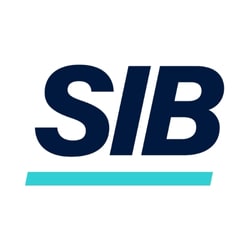Dive Brief:
- Haven, the high-profile JPMorgan Chase-, Amazon- and Berkshire Hathaway-backed venture that aimed to improve access to primary care, simplify insurance coverage and make prescription drugs more affordable, is suspending operations in February after three years, the company announced Monday.
- Haven caused waves when it launched in 2018, with a lineup of notable hires from within the healthcare industry. However, the nonprofit, independent company is closing with little concrete to show, hinting at the difficulty of its mission — especially spread among its three founding parent firms, which each have varying priorities, employees based in different locations, and their own healthcare systems requiring unique fixes.
- JPMorgan, Amazon and Berkshire Hathaway are going to work to shift Haven’s 57 Boston-based employees into roles at the founding companies and will offer transition support, JPMorgan CEO Jamie Dimon wrote in a memo to bank employees seen by Bloomberg and The Wall Street Journal. “Haven worked best as an incubator of ideas, a place to pilot, test and learn — and a way to share best practices across our companies,” Dimon said in the memo. “Our learnings have been invaluable.”
Dive Insight:
When JPMorgan, Amazon and Berkshire Hathaway announced Haven in January 2018, some industry watchers predicted the deep pocketbooks of the founding companies might help curb skyrocketing healthcare costs. The tie-up caused stocks in insurers and other major healthcare companies to plummet amid fears of disruption.
However, despite its ambitious beginnings, the venture made few visible signs of progress and suffered turnover in its C-suite and management team, culminating in May, when Haven's CEO, Atul Gawande, stepped down from day-to-day management to focus his attention on the coronavirus pandemic. Gawande, a surgeon who remained Haven's chairman, is an adviser to President-elect Joe Biden on COVID-19, Bloomberg reported.
“The Haven team made good progress exploring a wide range of healthcare solutions, as well as piloting new ways to make primary care easier to access, insurance benefits simpler to understand and easier to use, and prescription drugs more affordable,” Haven spokeswoman Brooke Thurston told CNBC in an email. “Moving forward, Amazon, Berkshire Hathaway, and JPMorgan Chase & Co. will leverage these insights and continue to collaborate informally to design programs tailored to address the specific needs of our individual employee populations and locations.”
Haven spent much of its early time building data systems about employees across the three partner companies, The Wall Street Journal reported, citing anonymous sources.
By 2019, Amazon and JPMorgan began offering employees health insurance through Haven in 2019, but that was in partnership with traditional payers. That year, according to the Financial Times, Dimon said Haven planned to offer health advice to the public at large, not just the companies’ own employees. Haven also tested providing flat-rate costs for healthcare services, a source told The Wall Street Journal.
But the venture's own initiatives bumped up against internal efforts at its three parent companies, failing to reach an overarching vision and not taking priority, CNBC reported.
Amazon, for one, has expanded over the past few years into a variety of health sectors, including cloud computing for healthcare and pharmaceutical companies, telehealth and primary care ventures for its employees and health tracking wearables.
An Amazon spokeswoman declined to comment to the Financial Times about Haven’s shutdown but stressed the closure would have no impact on Amazon Care, the telehealth venture. Business Insider reported in December that Amazon was in talks to offer that service to other companies.
“Even without the formal [joint venture]” that Haven provided, “Berkshire and JPMorgan could still remain important partners/customers for Amazon’s healthcare offerings with large employee bases,” Evercore analysts told Reuters.
It is unknown how much Haven cost the three companies because it operated largely out of public view, but the costs weren’t a significant factor in its shutdown, a source told The Wall Street Journal.











